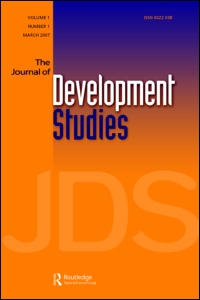 There are good reasons to believe it does.
There are good reasons to believe it does.
At least, that is the answer my coauthor Ken Lee and I come up with in a new article titled “Look Who’s Talking: The Impacts of the Intrahousehold Allocation of Mobile Phones on Agricultural Prices,” forthcoming in the Journal of Development Studies.
More specifically, in a sample of onion farmers in the Philippines, we look at whether there is a statistically significant relationship between whether anyone in a household owns a mobile phone and the price received by that household for its onions.
Failing to find any statistically significant association between the two, we then look at whether there is a statistically significant relationship between whether (i) the household head owns a mobile phone, (ii) the household head’s spouse owns a mobile phone, or (iii) any of the children in the household own a mobile phone and the price received by that household for its onions.